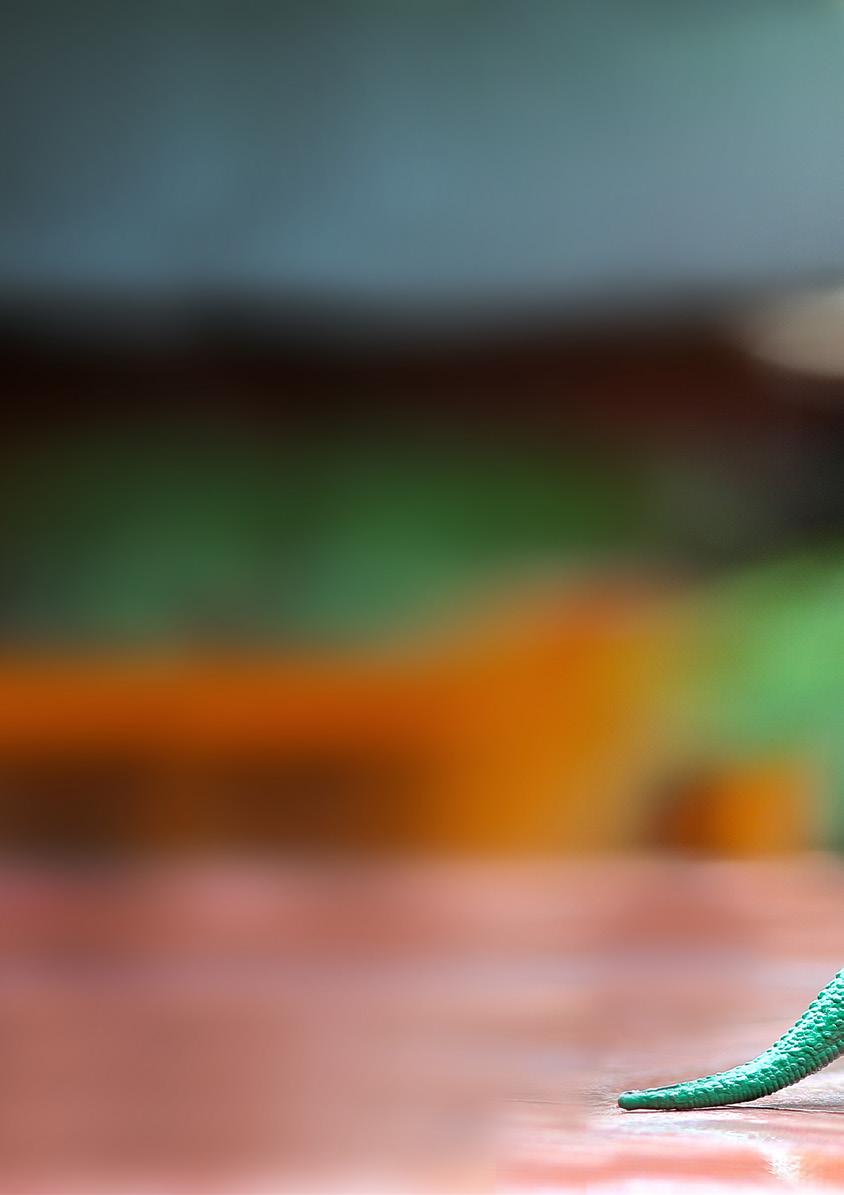
6 minute read
How to help your fussy eater
How to help your
Problem eater. Fussy eater. Sensory eater. Whatever you choose to call it the one constant is the distress that selective eating issues serve up to families on a daily basis.
Advertisement
Rajes says food and mealtimes have always been a struggle for her 11-year-old son, Raam, who is diagnosed with Autism Spectrum Disorder.
But the Truganina mum says while there is no single solution, trial and error and acceptance have helped her family better manage the challenges.
With Raam first showing signs of selective eating as a toddler, the family has tried ‘everything available’ - from food play groups and therapy to paediatricians and dieticians - and found patience to be the key.
‘There is no definite solution for it. I just have to do what makes me sane and what makes Raam happy.’
Together with patience and persistence, parents can support their children to approach food in a more positive way through thoughtfully selected strategies.
Why won’t my child eat?
Whether or not your child has a specific diagnosis, it can be tricky to pinpoint a single reason for a child’s selective eating.
Contributing factors could include: •
Oral motor development delays making it difficult for them to deal with different food consistencies,
Intense special interests distracting a child from eating what’s in front of them, Resistance to transitioning from a favoured activity to mealtimes, A child not recognising mealtimes as a social activity, or feeling overwhelmed by the social expectations Sensory processing differences leading them to avoid certain smells and textures, or seek certain visual features and tastes over others.
What to avoid
While the right strategies can help build a positive relationship with food, there are some approaches that can push a child in the opposite direction.
Things like force feeding your child, making separate meals for them or ignoring their eating concerns can make things worse.
Avoid distractions, such as the TV or an iPad, that can prevent your child engaging in the mealtime experience.
Things to try
If you have concerns about your child’s eating you should first see your GP to rule out any specific medical concerns, such as malabsorption, allergies, constipation or even swallowing difficulties.
Creating positive, calm mealtimes is a great place to start. Reduce pressure on the child to eat and shift the focus to yourself by modelling good mealtime behaviours.
Use verbal praise or a reward chart to acknowledge successes such as staying seated at the table, watching a sibling eat or touching a new food.
Smaller, regular meals may help. Rajes says she puts a sandwich alongside five or six different snacks into Raam’s lunchbox so he has a choice of foods.
fussy eater
Rajes says through therapy and experience, they have learnt what works and what doesn’t for Raam.
‘He is still a fussy eater. There is still not a solution. But we just know okay if he isn’t hungry, not to get stressed about it. We have come to an acceptance, that if he’s not eating, I’m not going to force him. ‘

Jennah Andrusiak is a Speech Pathologist with Gateways Support Services, a quality accredited, NDIS registered specialist in supporting people with autism, intellectual disabilities and complex behaviours and their families. Find out more at https://www. gateways.com.au/ services or phone 9396 1111

GRIZZLE design, branding and communication
We publish MamaMag
Our team understand mums and families and can help your business attract them.
We can help design and create your... Logo and brand identity Business cards and stationery Websites and social media graphics Advertising and marketing collateral Posters, flyers and postcards Brochures and newsletters Outdoor and indoor signage and more...

SURVIVING A PANDEMIC
It’s called a pandemic and it’s not normal. So we should not and will not expect you as a mum or dad to be able to parent the way you normally would. Did I tell you that this is not normal?
Your children’s routines have been unravelled, your routine has changed. Life has changed and it may not return to the normal we know. We don’t know how long this sudden change in lifestyle will last and when our routines will return to somewhat normality.
You may have lost your job, you’re worried about what the future will be like and yet we are expected to continue parenting, as if this is normal. It’s not normal.
More than anything we need each other, and it’s ok to put things aside and focus on just that.
Restrictions the second time round may present more challenges than before. My 4.5 year old daughter told me early on that she’ll miss her friend’s this time. It’s tough on them as it is tough on us.
So how can we still meet the needs of our children while we try to look after our own emotional needs?
Here are some ways that might help: PRIORITISE - what is important and what needs to be done? Is there anything that can wait? Can I plan sometime during the day where I am focused on just my child and what they want to do? As well as time for myself, whether it’s going for a walk or reading that chapter of my book. PREPARE - can I organise snacks, lunches and dinners the night before or on the weekend? So I don’t need to think about it during the day/week. Write a list of all the activities your child can do independently (can include screen time), this will help give you some quick ideas when you need some time to yourself. If you wanted to be super organised, you could set up some toys the night before so your child has something to do first thing! PLAN - write yourself a To Do List and break the list up to smaller achievable goals. Prioritise those goals. PLAY - allow opportunities in the day to play, turn off the phone and just be in the moment. Put music on, dance like there is no tomorrow, sing with your child or go jump in some puddles. Create some time to have fun, work and cleaning can wait! Sometimes scheduling in playful opportunities, allows you to be present and available to your child. And you’ll be surprised you will not only be filling your child’s emotional needs, but you will be filling up your cup too. CONNECT - and most importantly make time to connect with friends and family on a regular basis. Schedule in zoom or phone calls weekly or organise a group together and schedule in a trivia night. There are some good free online trivia programs such as Kahoot that are easy to use and lots of fun with friends and family.

And remember, we will get through this together. We are in some very challenging times, and we need to do what we can just to survive. We might have days where the TV is on more, we may have more work to do than play, and remember that that is ok.
If you find that things are challenging please contact Lifeline on 13 11 14 or for specific support in Perinatal and Infant mental health contact PANDA or COPE.
The Early Parenting Village can help with support around behaviour strategies, ideas to create play spaces or brainstorm some new and exciting activities that may engage your child.
And remember you’ve got this mum & dad!
By Zoe Guthrie, Founder of The Early Parenting Village. www.earlyparentingvillage.com.au










